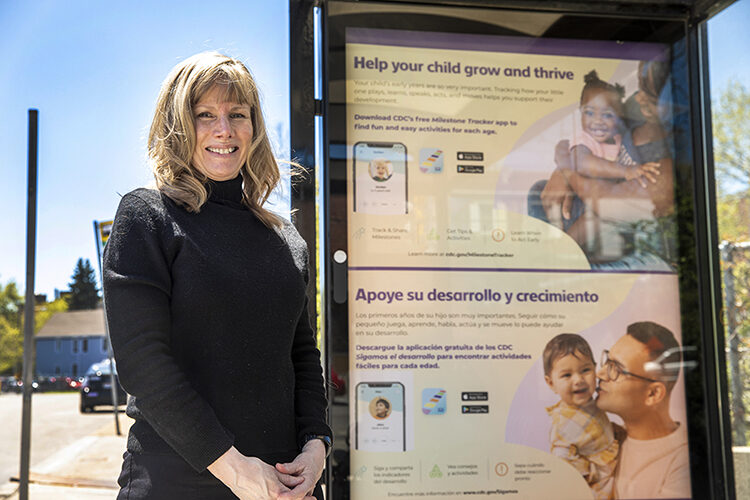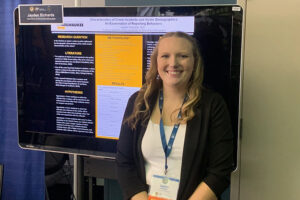An educational campaign in Milwaukee is reaching out to low-income families with young children who may have put off doctor’s appointments during the COVID-19 pandemic and are under considerable stress from long-term isolation.
Kris Barnekow, associate professor of health sciences, is leading the two outreach projects in Milwaukee with funding from the Centers for Disease Control and Prevention.
“Since the pandemic, many parents stopped seeing their pediatricians and children weren’t going to daycare,” Barnekow said. “And parents had their children at home, which increased their stress levels.”
The funding supports the twin goals of encouraging parents to monitor their infant and toddlers’ developmental milestones with the CDC’s “Learn the Signs. Act Early” materials and giving families resources to weather difficult times.
Phone app helps parents
Barnekow is advertising a phone app, called the “Milestones Tracker” through the CDC’s “Learn the Signs. Act Early” campaign. The app helps parents monitor the development of their infants and toddlers so they know when to seek medical help if they notice delays. From April into June, posters for the campaign are appearing on Milwaukee County buses and at bus shelters.
Parents enter their child’s date of birth and the app provides indicators of normal development at various ages, beginning at two months. Parents can use the information to express concern to their pediatricians, said Barnekow.
“Staying on top of the child’s development will hopefully encourage parents to engage with health professionals to get their child’s needs met as early as possible,” she said.
Early diagnosis of conditions like autism occurs later in Black and brown families than in white families because of systemic racism and limited access to resources such as transportation or housing.
In addition to promoting the program’s “Milestone Tracker” app through the transit system, Barnekow and Cindy Petros, a graduate student in occupational therapy, are getting out the word by distributing books that parents can read to children ages 1-3 that highlight developmental milestones. The books, provided by the CDC, are being distributed to two state organizations that cater to low-income families with young children – the Wisconsin Family Foundation Home Visiting Program and health clinics that participate in the Reach Out and Read program.
Helping parents with their problems too
Using the books is another way that CDC aims to reach and engage parents, said Barnekow.
At the same time, the funding assists parents in strengthening their own mental health and resilience. With Patrycja Karwowski, an undergraduate in occupational science and technology, Barnekow is promoting the resources available for vulnerable families on the Facebook page of the Act Early Wisconsin program.
“Reading a book with a child is a natural way to promote resiliency and togetherness,” she said.
Barnekow is co-lead of the CDC grant with the staff at the Waisman Center at UW-Madison. She was involved with the “Act Early” state team before the pandemic hit. Because of COVID-19, the CDC added resources to address early identification and resilience to the funding.








